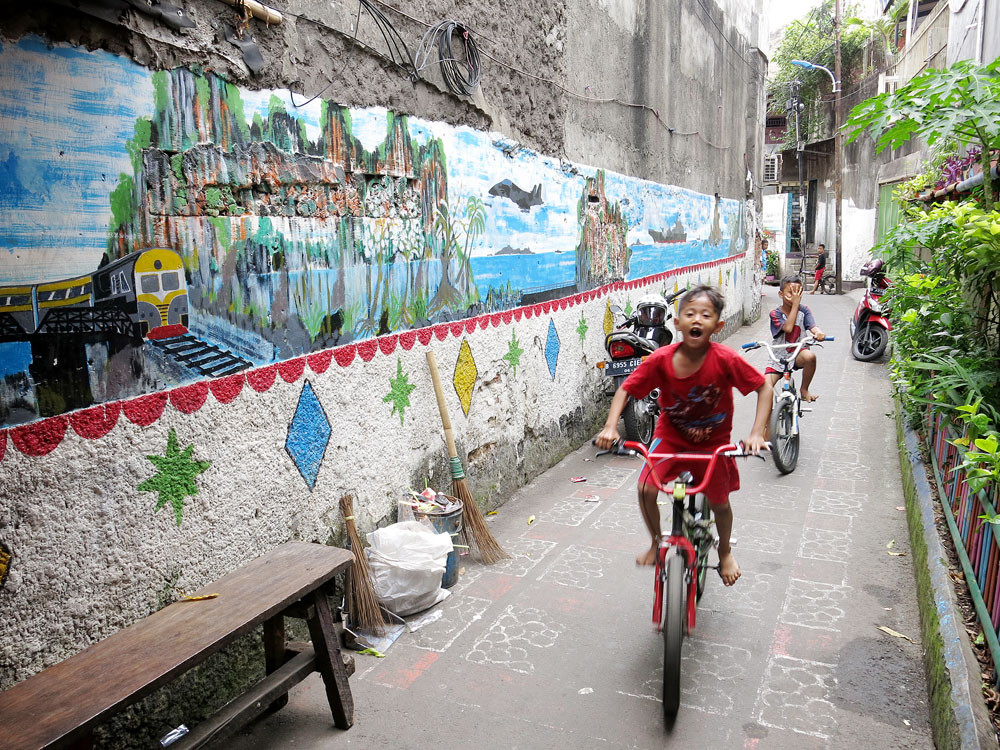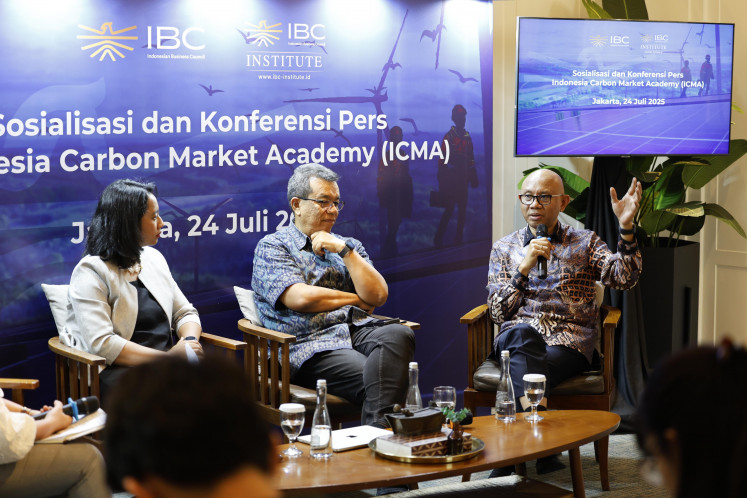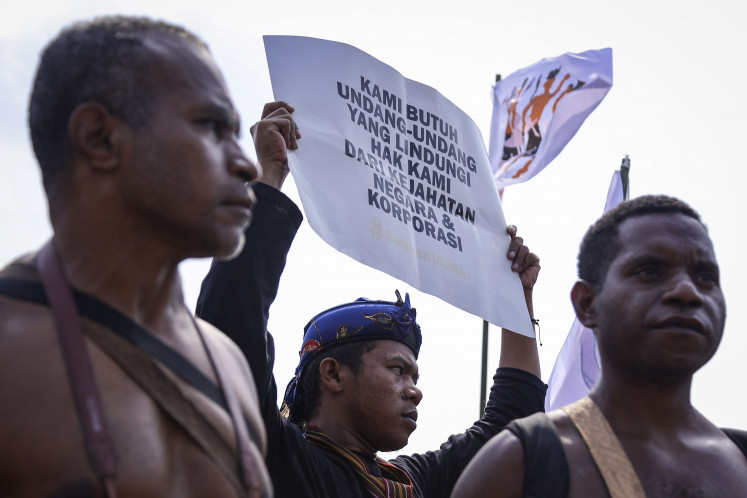Popular Reads
Top Results
Can't find what you're looking for?
View all search resultsPopular Reads
Top Results
Can't find what you're looking for?
View all search resultsGet ready for a bike revolution
The city needs to provide other facilities and conveniences to encourage people to take up biking to work.
Change text size
Gift Premium Articles
to Anyone
J
akarta is ripe for a bicycle revolution. We are already on the brink as more people are taking up biking for leisure, sports and now, to get to and from work. But we are not quite there yet. This revolution needs an effective leader.
Alas, Jakarta Governor Anies Baswedan is not it. He led a campaign on Thursday morning to mark World Bicycle Day, cycling to work along with his big entourage and VIPs. But as typical, it was more pomp and no circumstance. Anies should know that batik and bikes do not go together, especially not on a hot morning. His initiative to erect a bicycle monument that costs Rp 800 million (US$57,000) on the main thoroughfare Jl. Sudirman has already been mocked as a waste of money.
One of his predecessors, Joko "Jokowi" Widodo, would have been the ideal leader for this revolution as he consistently biked to work every day for the 1 kilometer stretch between his official residence and office. That was not quite a revolution then, but he led by example. Sadly, in 2014, he moved to become Indonesia’s president. Anies’ support, nevertheless, is important as he runs the city.
Jakarta has already designated 63 km of special bike lanes across the city and plans to add another 101 km this year. This is too little and too slow. The city needs to provide other facilities and conveniences to encourage people to take up biking to work. We need more secure bicycle parking racks and more public facilities for people to shower before they go to their offices. Streets must be better lit so that people can safely bike at night. Public buses and trains must provide facilities for people to take their bikes on board.
None of this will happen automatically. Pressure must be put on the administration. A bike revolution is what Jakarta needs to transform into a bike-friendly city. Many big cities in the United States and Europe have already gone through their revolution. We could learn a thing or two from our former colonial masters on how they turned Amsterdam into the cycling capital of the world.
There are strong economic and health arguments for this revolution. The COVID-19 pandemic adds another compelling reason why biking is safer than crowding yourself into buses and trains.
We already have the Bike to Work Community (B2W), launched in 2005 as a moral movement, which could turn into an effective lobby organization to secure more concessions for bikers.
Coming back to the leadership question. Historically, revolutions have always been a middle-class affair. This one is no exception. Last week, a video went viral showing a group of people in their fancy (i.e. expensive) bikes virtually occupying the whole width of Jl. Sudirman, preventing other users to pass. The video showed a clearly annoyed man on a motorcycle giving the cyclists the finger. A huge debate ensued on social media, with many netizens calling the cyclists arrogant. But they have their share of defenders and supporters, too.
If a revolution needs people with attitude, those shown on the videos may just be the perfect candidates to be its leaders.










